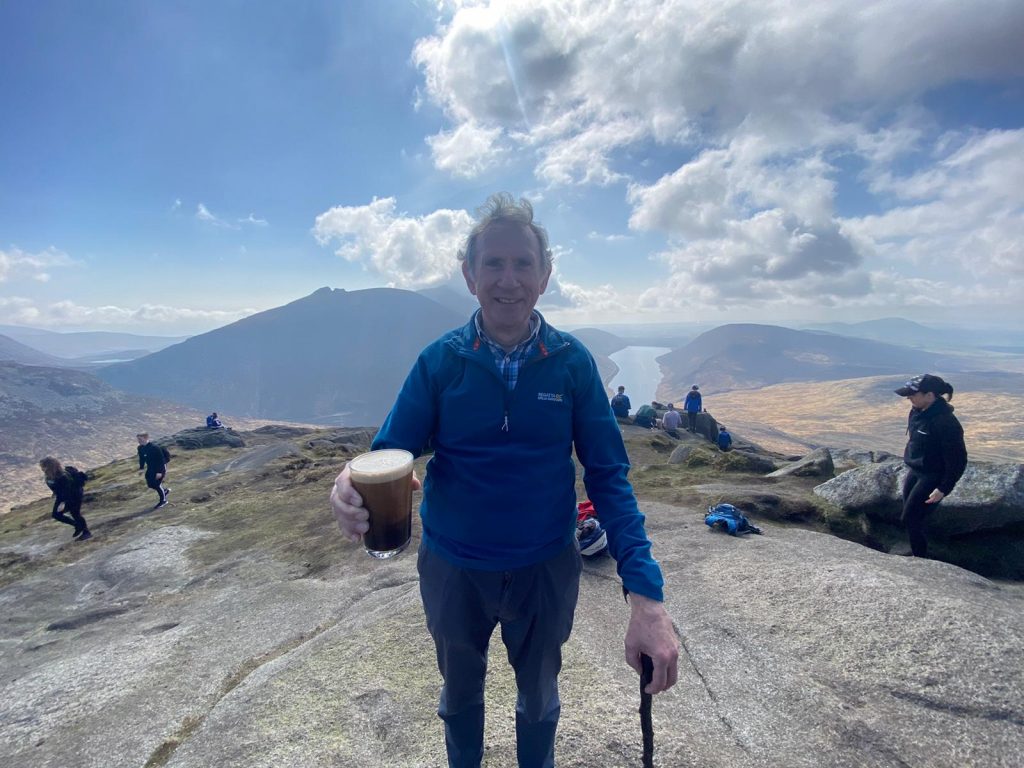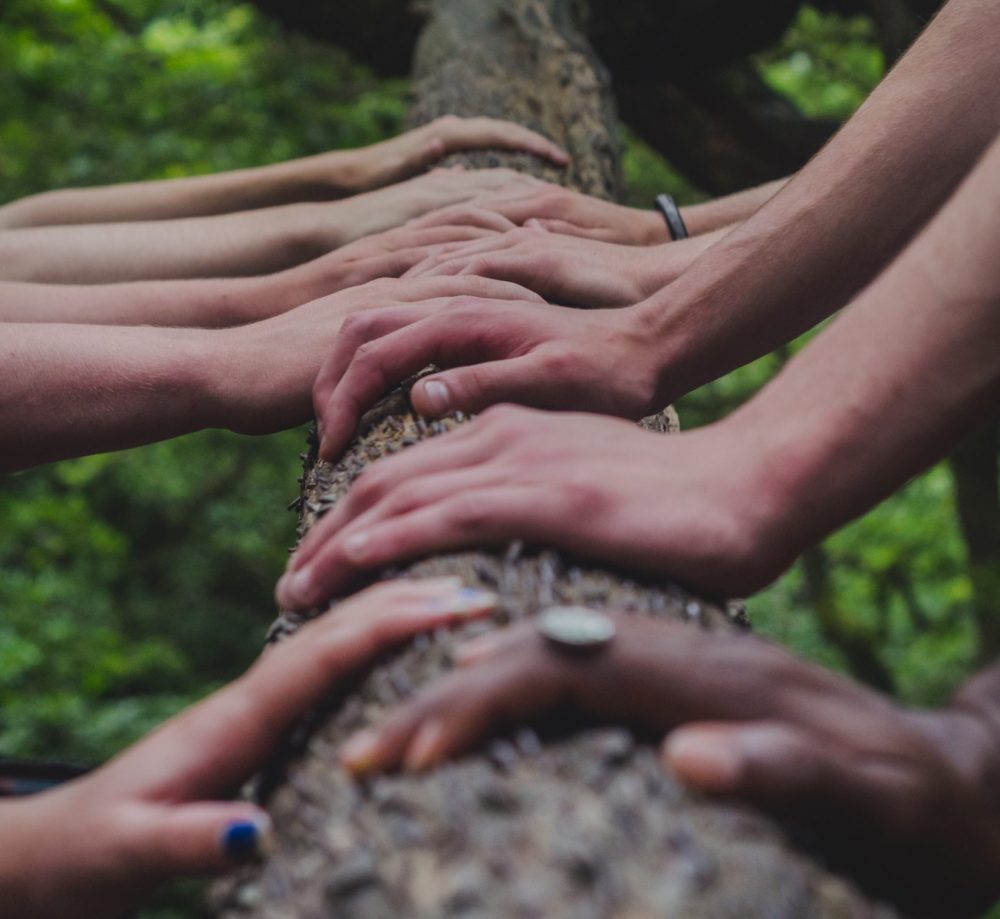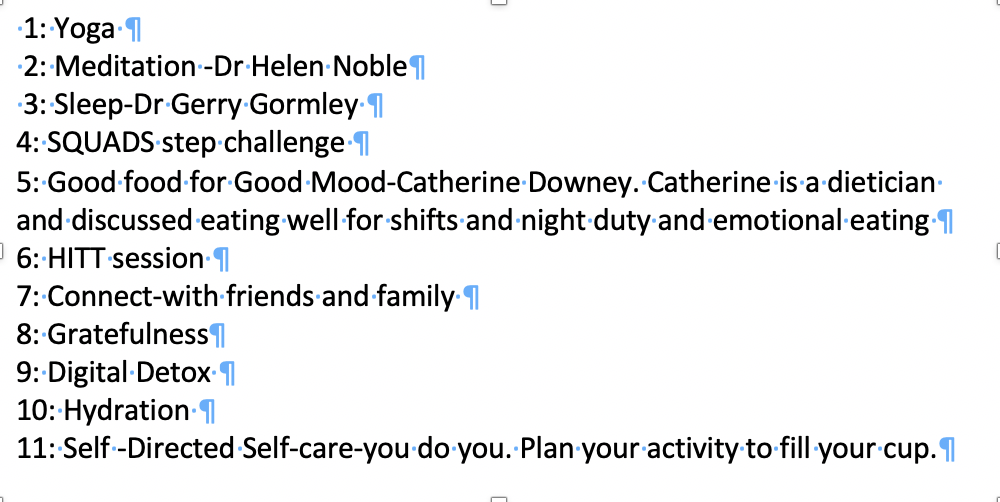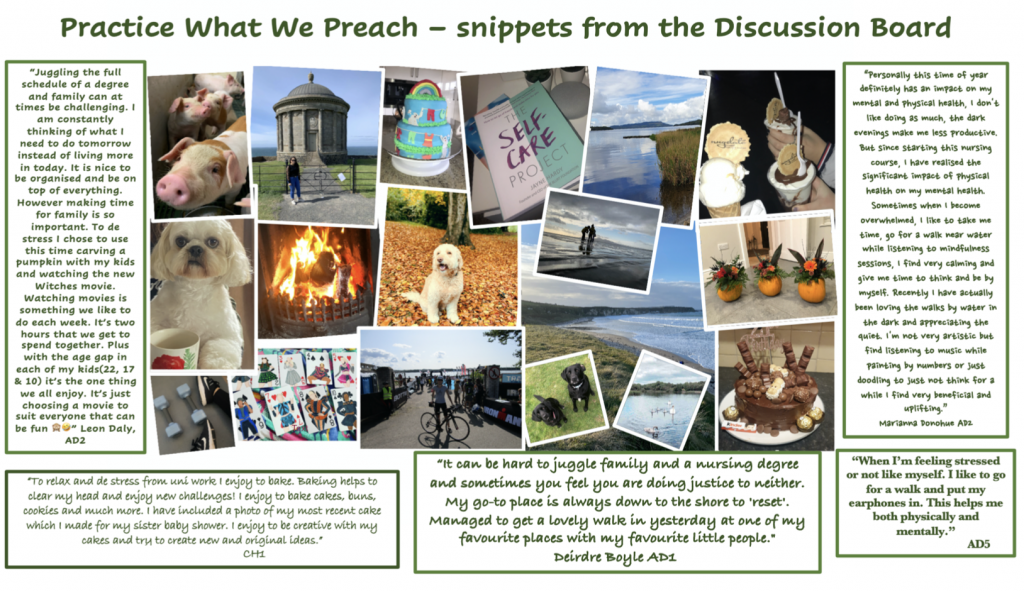In January 2021, Lecturer in Education, Conor Hamiltons’ dad contracted Covid. In this blog post, Conor reflects on the impact of not being connected to him during his illness and on using his Dads connection with the Mournes (and Guinness) to aid his recovery.
By now just about everyone on the planet is aware of Covid-19. Very few have been untouched by its grasp. Since March 2020 we have all had to change the way we live our lives, be it work, school, shopping, exercise, face to face socialising or visiting family. We have missed parties, pubs, restaurants, holidays and foreign travel. Parents became teachers. Nurses and doctors became unlikely superheroes. As nurses and nursing students some of us were redeployed from our normal day to day jobs to frontline nursing and caring for the sickest of those affected. Personally, I was redeployed from running endoscopy lists in a Day Procedure Unit, to night shifts in Covid Emergency Theatre and having to run from Theatre to the Respiratory Ward or E.D. to intubate the sickest patients and bring them to ICU via the CT scanner. I would be lying if I said I wasn’t affected. We all were whether we care to admit it or not. I know some of those patients sadly didn’t make it. I took my work home with me every morning and I thought about little else until I went back in again that night.
My family remained untouched directly by Covid until January 2021. My parents are both in their seventies. My mother has multiple comorbidities but my father is an ex-marathon runner, and indeed clocked 2 hours 38 minutes for the distance in the mid-eighties. He still walks ten miles a day, and loves hiking in the Mournes. For almost a year they isolated and did everything by the book. My family and my brother’s family visited the back yard and spoke to them through the glass window of the porch. They exercised once daily in Loughgall Park or Gosford Forest Park and stayed within a short radius of home. Shopping was all done online. Yet somewhere over the Christmas period of 2020 Covid caught up with them. Mum had mild flu-like symptoms. Dad initially had the same, but on 7th January his chest became tight and the GP was called. He was ill, but not ill enough for hospital. We were told to monitor him overnight and ring 999 if he deteriorated. Being a typical man, he went off to bed assuring us he would call if he got any worse. At 8am the next morning, my mother found him almost blue, struggling to breathe with oxygen saturation levels below 80%. He didn’t want to go to hospital so he decided to tough it out overnight and hope it would clear up. He was blue-lighted to Craigavon Hospital and the paramedic said had he waited another hour he might not have made it.
So began a month of no contact with dad other than text messaging and passing messages via nursing staff. Dad doesn’t do technology so Facetime, Whatsapp and all those other video messaging services were out the window. It was this very week that I started as a Lecturer in Nursing at Queen’s and I also tested positive for Covid four days after my first vaccination. So, mum was on her own, dad was in hospital and we were all isolating. It was a pretty busy and stressful week. Having been called out to 2 North Respiratory a number of times to help intubate patients while working in Covid Emergency Theatre, I could picture the scene and appreciate what was going on around him.
Dad continued to deteriorate over the next two weeks to the point where he was put on CPAP and told the next step was ICU and ventilation. He found the CPAP intolerable and not only was he physically deteriorating, but mentally he had reached rock bottom. His friend from school, over 60 years ago, had passed away suddenly overnight as a result of Covid in the bed next to him. Dad then developed pulmonary emboli (clots on his lungs). At his lowest ebb, he rang my mum one morning and said he didn’t think he would make it out of hospital, and gave her his bank account details – that’s how we knew he was really sick!
Not knowing how to lift his spirits, myself and my brother David decided to set him a goal. We promised him we’d have a pint of Guinness on top of Doan (one of the smallest peaks in the Mournes) when he recovered. Every time we spoke to him on the phone between then and his discharge weeks later, we reminded him of the goal. For six weeks after discharge either myself or David would call for dad, no matter what the weather, and take him for a walk at 6pm. He started with 400 meters on 8 litres of oxygen pushing a rollator. Again, being a proud man, known around Armagh and beyond for his marathon exploits in the eighties, he would not go out in daylight with the rollator – this was all done under cover of darkness, wearing a big hat and a buff! Over the six weeks we weaned him off the oxygen and increased the distance gradually. Eventually he was walking six miles non-stop with no oxygen. On 1st of April he rang and said he was ready for Doan on the 3rd – I thought it was an April Fool prank, but no, he was ready. His two youngest grandchildren were there to set an easy pace, and in just over 2 hours we had walked the four miles to Doan and made it to the summit. I had three cans of Guinness with me and three glasses to fulfil the promise. That’s him below with the pint…. on Doan. It was a perfect day. It wasn’t a bad pint either. Just before we took this photo we met two of the anaesthetists from Craigavon who were delighted to see him up there. I think they got a bit of a lift from seeing the benefits of their work.

I posted this photo on the Mourne Mountains Hiking Facebook page and it was picked up by a member who is a journalist for the Irish News. They ran a story about dad’s pint of Guinness on Doan and stated that the photo was “the” photo of the pandemic. The Newsletter then picked it up. BBC Radio Ulster rang and did an interview with us on their morning slot. It went to my dad’s head a bit and he started practicing his signature for autographs. We were told last week that the story had made it to newspapers in India, via Canada. Good news seems to travel fast. It seems everyone wants to grab a positive story from the pandemic.
I’m extremely proud of my dad. He is back to walking eight to ten miles a day with his wee rucksack on his back. He takes a stick now, just for a bit of peace of mind. I’m not sure if he takes any Guinness though. If nothing else this wee tale shows the benefits of goal setting in recovery. I’m not sure what would have happened to dad if we hadn’t set him a goal. I’m not sure if it was the goal that helped him recover, or the fact that he realised he had given mum access to his bank account. I like to think it was the goal. He has since changed his bank account password. Set yourself goals in life – believe and you can achieve. Never give out your bank account details. Stay safe.


